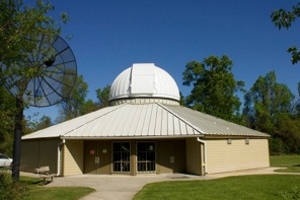Outreach Centers in Physics & Astronomy
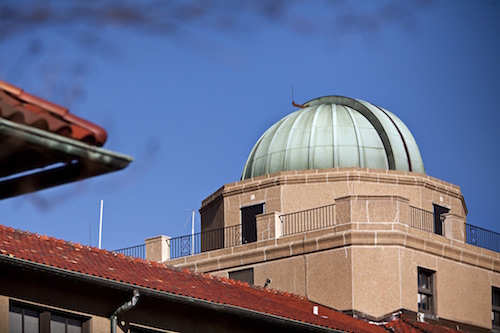
Observatory
The Landolt Astronomical Observatory is located on the LSU campus on the roof of Nicholson Hall on Tower Dr. immediately west of the LSU Student Union (across Tower Dr.). Admission is free. Parking in the lot is free and open after business hours and on weekends.
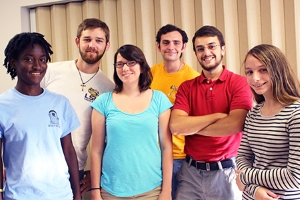
SPS
Society of Physics Students serves as LSU's club for those with interests in physics, astronomy, and related fields. The club is teaming with physics majors, but several others also join.
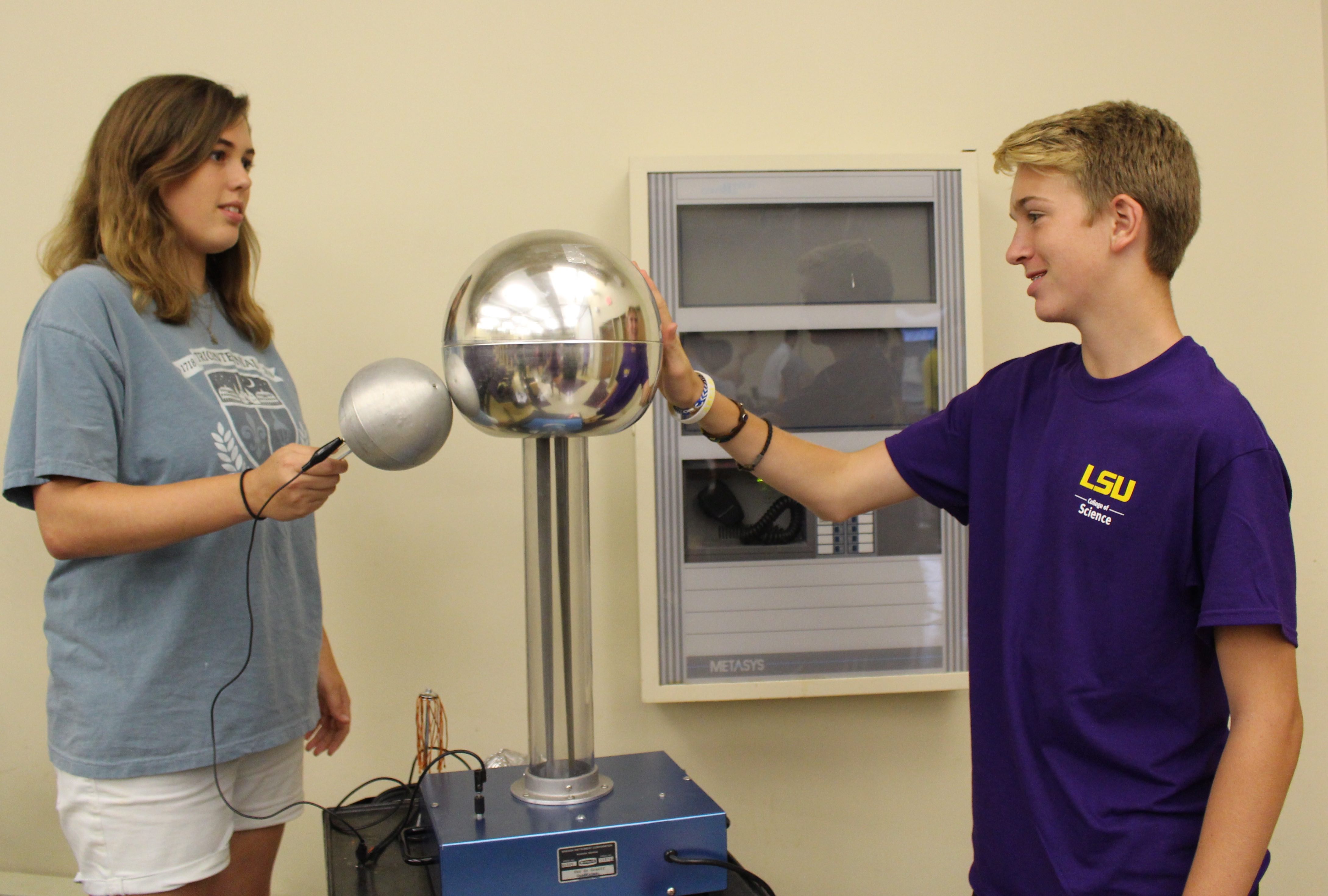
REU (Research Experiences for Undergraduates)
We host a summer REU program in Physics & Astronomy.
The 10-week program introduces students to the nature of research-oriented careers in physics & astronomy, and fosters development of research-related skills and knowledge. Participants are matched with faculty mentors based on student interests.
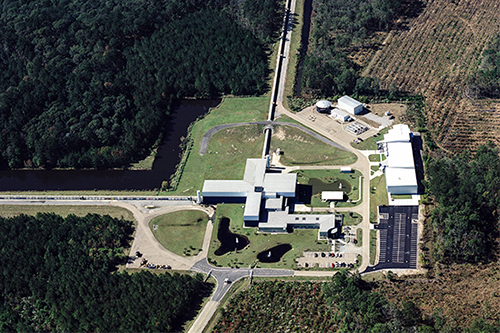
LIGO
The Laser Interferometer Gravitational-Wave Observatory (LIGO) is designed to open the field of gravitational-wave astrophysics through the direct detection of gravitational waves predicted by Einstein’s General Theory of Relativity. LIGO’s multi-kilometer-scale gravitational wave detectors use laser interferometry to measure the minute ripples in space-time caused by passing gravitational waves from cataclysmic cosmic sources such as the mergers of pairs of neutron stars or black holes, or by supernovae. LIGO consists of two widely separated interferometers within the United States—one in Hanford, Washington and the other in Livingston, Louisiana—operated in unison to detect gravitational waves.
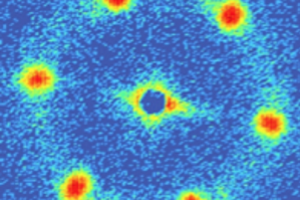
LaCNS
The Louisiana Consortium for Neutron Scattering (LaCNS) was founded in August of 2014 with the aim of building an internationally competitive neutron scattering research program in Louisiana. Through this initiative, which brings together faculty from Louisiana State University, Tulane University, University of New Orleans, and Louisiana Tech, the state of Louisiana will become and remain a leader in the exploration of advanced materials using neutrons.
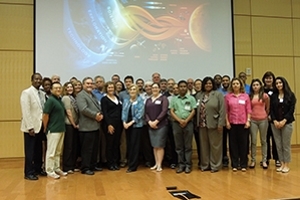
LaSPACE
The Louisiana Space Consortium is a member of a nationwide organization that partners NASA with colleges / universities and other space related institutions to promote scientific research, workforce development, and public outreach to develop and strengthen long-term research capabilities that will make significant contributions to the research and technology Mission Directorates of NASA.
![]()
CCT
The Center for Computation & Technology, or CCT, is an interdisciplinary research center located on the campus of Louisiana State University in Baton Rouge, Louisiana. CCT advances LSU’s Flagship Agenda and promotes economic development for the state by using computational applications to aid research and develop solutions that benefit academia and industry.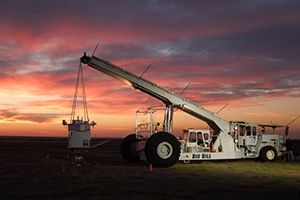
HASP
The High Altitude Student Platform HASP is designed to carry up to twelve student payloads to an altitude of about 36 kilometers with flight durations of 15 to 20 hours using a small volume, zero pressure balloon. It is anticipated that the payloads carried by HASP will be designed and built by students and will be used to flight-test compact satellites or prototypes and to fly other small experiments.
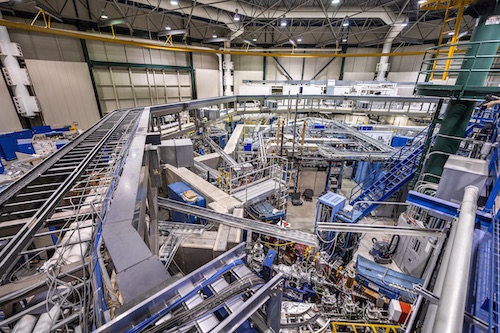
CAMD
The J. Bennett Johnston, Sr., Center for Advanced Microstructures and Devices (CAMD), is a synchrotron radiation research center at Louisiana State University in Baton Rouge. The mission of CAMD is to provide infrastructure for research and education in synchrotron-based science and technology. The facility was built with a $25-million grant from the U.S. Department of Energy and is currently operating with an annual state-provided budget of $4 million. Research in basic sciences and microfabrication is conducted by scientist and engineers from Louisiana universities, along with distinguished scientists from national and international institutions.
HRPO
HRPO-Highland Road Park Observatory is located in BREC's Highland Road Park. The 20-inch reflecting telescope is located inside the retractable dome.
LSU's Department of Physics and Astronomy secured funding for the 20-inch and 16-inch telescopes and the equipment needed to operate them. The Department's faculty and graduate students are consistently involved in HRPO's public programs by volunteering as guest speakers and telescope operators, and by sharing their expertise in astronomy.
Saturday Science
The Saturday Science @ LSU series of lectures are for high school students, teachers, and the public. We invite you to join us for, we think, an interesting and exciting series.
All the lectures will be held from 9:30 AM to 11:30 AM in 130 Nicholson Hall on the Saturday's listed below at LSU, Baton Rouge. We hope you will join us, and will look forward to seeing you and your students.
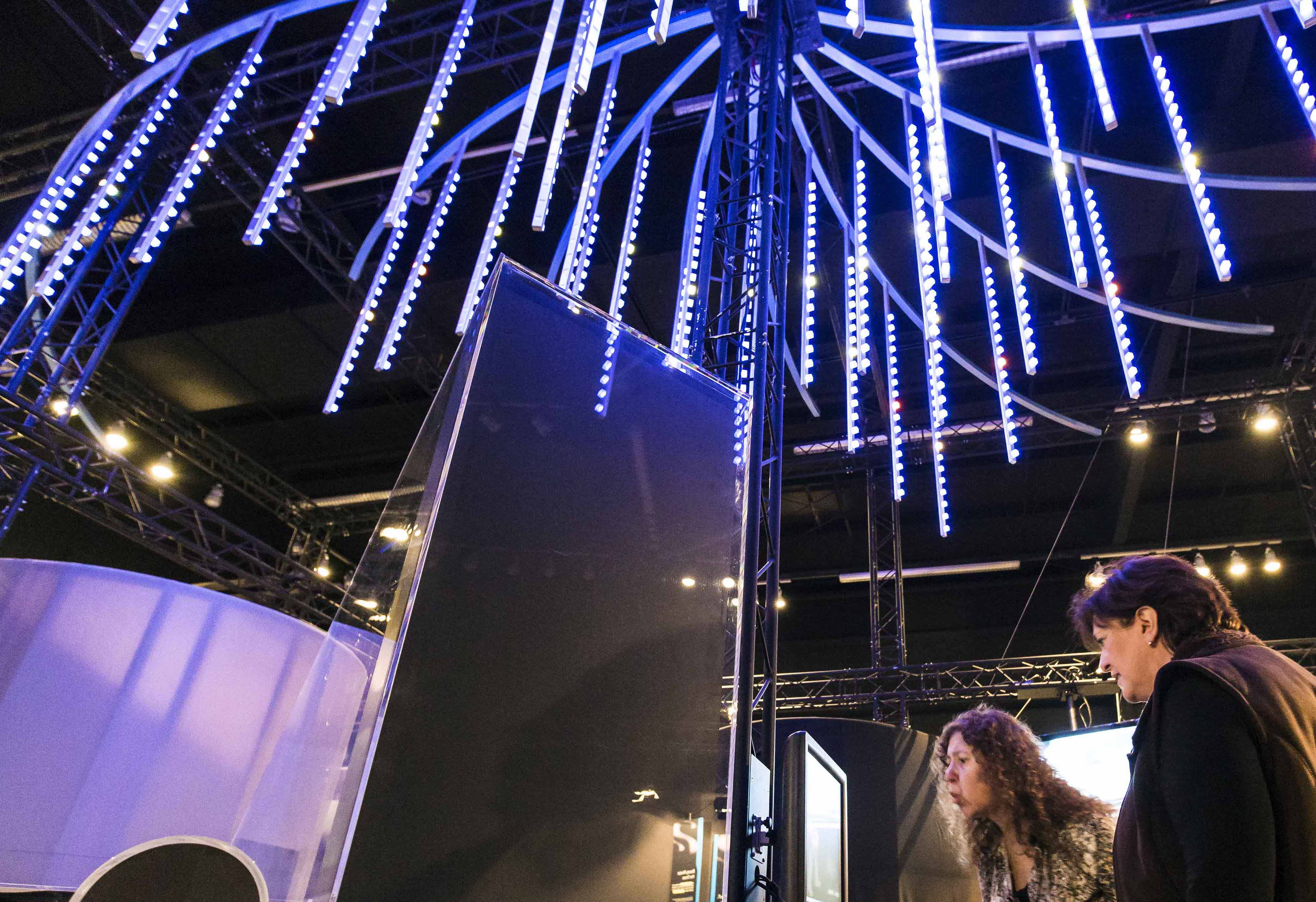
This program, supported by a grant from the Patrick Taylor Foundation, seeks to leverage the educational resources of the LIGO Science Education Center at LIGO Livingston, bringing physics demonstrations and other activities to middle and high schools in Louisiana, with an emphasis on those serving underrepresented minorities. Since the program started at the time of the pandemic, most activities have up to now been virtual, with in person visits starting in fall 2022.
